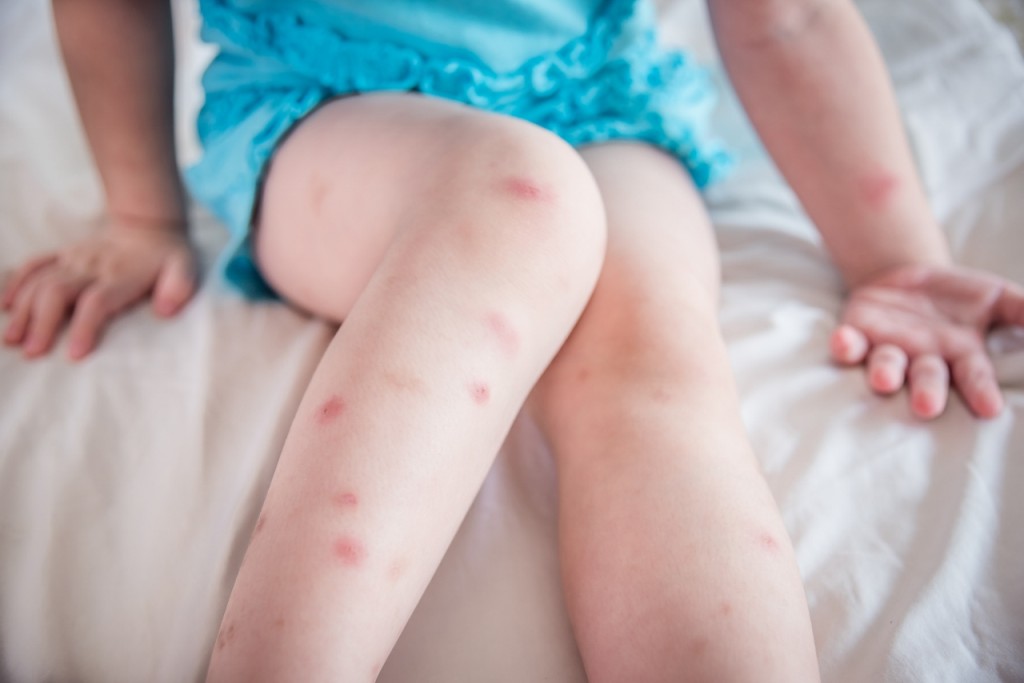Along with the warm weather, blooming trees, and flowers, the insects that live among them are also returning. As beneficial as many of them are to nature, it doesn’t change the fact that bug bites are a huge nuisance. Mosquitoes, spiders, fleas, ants, and bees are just a few of the many biting insects that we have to deal with in the warm months.
Most bites are easily treatable with over-the-counter medication like hydrocortisone, allergy medicine cream, or oral allergy medication.
Tips for keeping your child safe from insect bites and stings:
Though there is no foolproof way to never get a bug bite, there are ways to try to keep bites at bay.
- Check for nests where children play. Look in old tree stumps, rotting wood, and holes in the ground. If you find a nest, have it removed by a professional exterminator.
- Avoid wearing bright colors and floral patterns, as they can also attract insects. Colors that are not attractive to bugs are white, green, khaki, and tan.
- During a picnic or eating outdoors, try to avoid foods that attract insects, like PB&J, watermelon, and tuna. Sweet foods can also attract insects, so avoid sweetened drinks and fruit juice, ice cream, and other sweets.
- If there is an insect nearby, do not swat at it or run, as these are things that can trigger an attack. Simply walk away, slowly.
- If you have disturbed a nest – try not to panic. If insects swarm around you, curl up as tightly as you can to reduce the amount of skin that they can attach, and keep your face down and cover your head.
- If your child is allergic to insects, don’t let him play outside alone when insects are active. Even if an insect is dead, it can sting if you step on it or pick it up. Allergic children should wear a medical alert necklace or bracelet.
- Wear long sleeves and pants when walking through tall grass or woodsy areas.
- Use insect repellent when outside for long periods of time.
Allergic Reactions
If someone is allergic, then a bite is not just a bite and it can cause dangerous reactions. For some, it can mean greater inflammation and skin irritation at the bite location. For others, it can cause anaphylaxis shock. In these situations, it is far more serious as the venom from the bite causes the shrinkage of the air passages affecting their ability to breathe. In these cases, they need immediate medical attention.
Though it is not as common to have such a severe reaction, for those who do have serious allergies, a quick reaction time is needed. Many who know they are at risk carry medication known as the Epi-Pen, a device that carries a shot of epinephrine (adrenaline) to reopen the air passage. Parents should always notify teachers, caretakers, and coaches of their child’s condition and give them instructions on how to use an Epi-Pen during an emergency.
Staying calm is always best. It allows for quick thinking and action. Children will take the lead from the calm person in control, which only makes the situation better. If you are allergic and are concerned that your child may be, please discuss it with your pediatrician.


